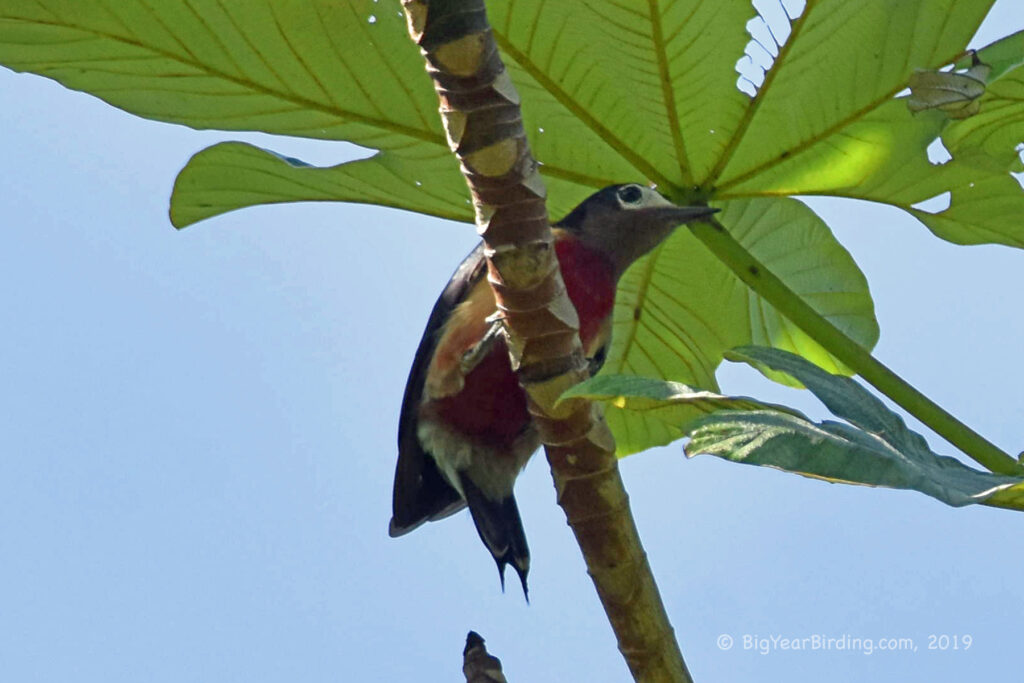The Puerto Rican Woodpecker (Melanerpes portoricensis) is a species of bird in the family Picidae. This bird is found exclusively on the island of Puerto Rico and is considered a endemic species. These birds can reach a length of 9 to 10 inches and have a weight of 2 to 4 ounces.
One of the most distinctive field marks of the Puerto Rican Woodpecker is its striking red crest on the top of its head. The male also has a black patch on the back of the neck and a red moustache that runs down the sides of the face. The body of the bird is black and white with black wings and a white belly. The female has a similar appearance, but with a smaller red crest and no black patch on the neck.
The Puerto Rican Woodpecker is a non-migratory bird, meaning that it spends its entire life on the island of Puerto Rico. These birds are often found in forests and wooded areas, where they feed on a variety of foods including insects, fruits, and nuts. They are also known to use their strong beaks to peck at tree trunks in search of food, hence their name.
In terms of habitat, the Puerto Rican Woodpecker is a highly adaptable bird and can be found in a variety of environments, from tropical rainforests to suburban areas. Despite its adaptability, the species is considered endangered, with only a few thousand individuals remaining in the wild. The main threats to the species include habitat destruction and the introduction of non-native species to the island.
To help conserve the Puerto Rican Woodpecker, conservation efforts have been put in place to protect its habitat and monitor the population. This includes the creation of protected areas and the implementation of control programs for non-native species. Additionally, education programs have been established to raise awareness about the importance of protecting this unique bird species. With these efforts, it is hoped that the Puerto Rican Woodpecker can be saved from extinction and continue to thrive in its native habitat for generations to come.

